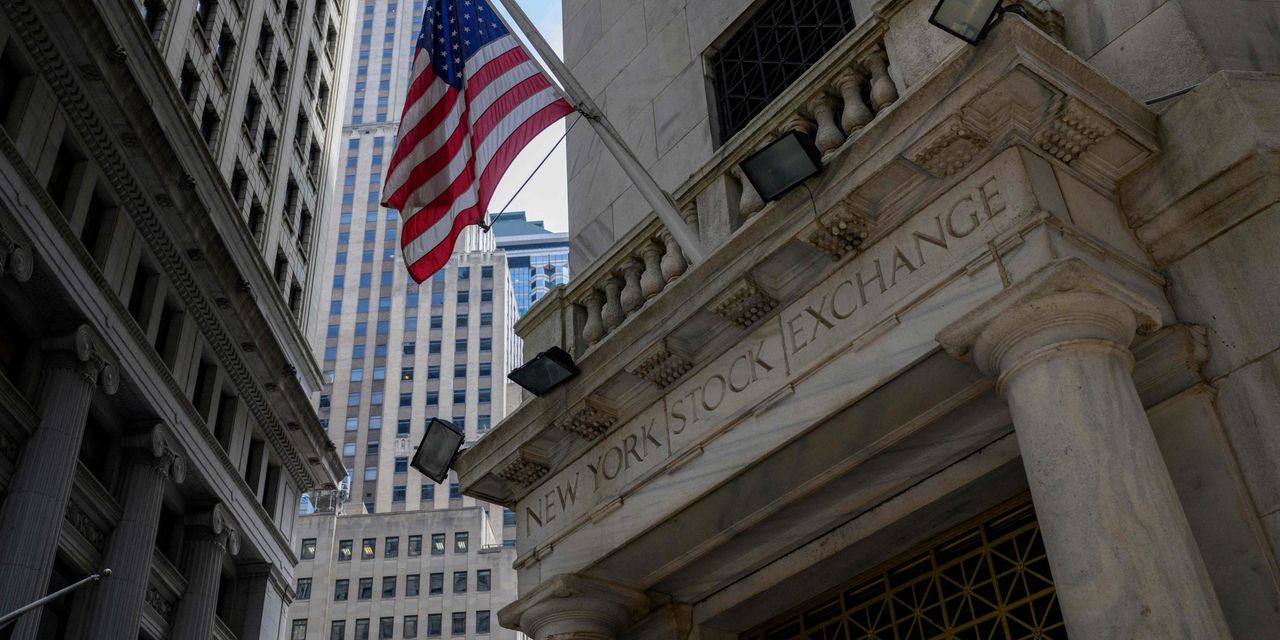Major U.S. stock indexes have rallied this year but the bear market isn’t over and “it’s too soon to price in a recovery,” according to a midyear outlook report from Citi Global Wealth Investments.
“We have had an overweight to global dividend growers,” including companies with strong balance sheets and free cash flow that can withstand a recessionary environment and tightening credit conditions, said Kristen Bitterly, head of North America investments at Citi Global Wealth, in a phone interview. “We’ve been going more global in nature within that positioning.”
Citi Global Wealth is favoring defensive equities while expecting rolling recessions across U.S. sectors amid low economic growth. Its midyear report shows a forecast for 1% real growth in U.S. gross domestic product in 2023 followed by a 1.4% expansion in 2024.
Bitterly is anticipating that the Federal Reserve, which has a policy meeting next week, may begin cutting its benchmark interest rate by the fourth quarter. That view is partly tied to her expectation for inflation, as measured by the consumer-price index, to fall to around 3.5% by year-end and the number of new jobs being added in the U.S. to slow to around zero, she said.
The Fed has been trying to bring down high inflation by lifting interest rates in an effort to cool demand in the economy. Fed-funds futures point to a 70.1% chance of the central bank pausing its rate hikes at its meeting next week, and a 29.9% probability of a quarter-point hike, according to the CME FedWatch Tool, at last check.
“We do believe that we’re close to peak interest rates,” said Bitterly. The Fed has aggressively raised rates since March 2022, with its policy rate now in a target range of 5% to 5.25%.
“In terms of looking at your fixed-income portfolio, you want to make sure that you have diversification,” she said. “We’ve seen a lot of investors go into very short duration fixed income.”
Treasury bills, a form of short-term government debt, have been popular with investors for their yields of more than 5%, according to Bitterly. While holding T-bills has been an important part of “cash management,” longer duration bonds may appreciate in value as rates come down, she said.
“Even just extending out to five years can create some really balanced portfolios and some sustainable income,” said Bitterly, pointing to opportunities in Treasurys, investment-grade bonds or municipal debt.
The yield on the five-year Treasury note
TMUBMUSD05Y,
was trading around 3.95% on Thursday morning, according to FactSet data, at last check.
Some investors may be holding a lot of cash, including cash-equivalent T-bills, in hopes that there’ll be a great moment to buy in the stock market, according to Bitterly. But in a rolling-recession environment, “there may not be a situation event,” she cautioned, even if some market volatility may arise.
“This idea that all of a sudden you’re going to pick this ideal entry point to then get back into equities in a material way, or get back into risk assets, is a really, really tricky and difficult proposition,” said Bitterly.
Big Tech has driven U.S. stock-market gains this year, with the S&P 500
SPX,
up slightly more than 11% through Wednesday, according to FactSet data. Megacap companies known as Big Tech include Apple Inc.
AAPL,
Microsoft Corp.
MSFT,
Google parent Alphabet Inc.
GOOG,
GOOGL,
Amazon.com Inc.
AMZN,
Nvidia Corp.
NVDA,
Facebook parent Meta Platforms Inc.
META,
and Tesla Inc.
TSLA,
“A highly concentrated U.S. tech rally this year masks the value still present in global equities following the 2022 bear market,” according to Citi Global Wealth’s midyear report. “Economic and profits growth should bottom in the next few quarters, likely presenting an opportunity to diversify portfolios into non-U.S. shares, profitable small firms, and still-depressed growth stocks.”
With the U.S. dollar likely weakening from its surge in 2022, international equities present investment opportunities from a currency perspective as well as from a valuation standpoint, said Bitterly.
Citi Global Wealth’s report also looked at “unstoppable trends” that are long-term forces “changing the world,” including areas such as generative artificial intelligence, “energy security,” reshoring amid tensions between the U.S. and China, and demand for healthcare.
“Investors should not disengage from long-term growth opportunities and evolving risks because of immediate market conditions,” the report says.
In AI, there are very few “pure plays” within publicly-traded markets, but industries such as cybersecurity may be “along for the ride,” said Bitterly.
Meanwhile, the bear market may not be over, but “I think we are close to it,” she said.
Read the full article here










